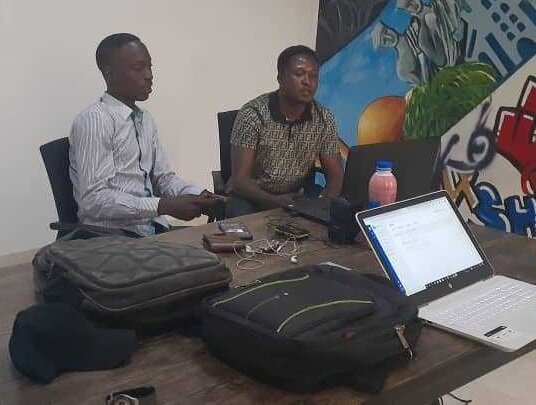For years, many leaders and institutions have been lauding Africa as the future in terms of producing technologically capable individuals—Nairobi was dubbed the “Silicon Savannah ” of Africa as far back as 2006. But not many companies have been able to tap into those possibilities. There are many reasons for this, including regional political upheavals, a lack of hardline infrastructure, and difficulty establishing local connections. The level of uncertainty presents a nearly insurmountable obstacle, even if the opportunities are otherwise appealing.
In the late 20th century, India became the go-to supplier for offshore IT support and development resources. The establishment of the World Trade Organization in 1995 helped facilitate international agreements which reshaped those industries over the next 20 years. The Information Technology Agreement (ITA), which entered into force on July 1, 1997, eliminated all taxes and tariffs on IT products by its signatories.
Prior to starting Baobab Partners, CEO Stratten Waldt worked extensively with offshore resources in his engagements with other consulting firms. However, there were considerable drawbacks to this strategy; significantly different time zones (IST is 9 ½ or 10 ½ hours ahead of EST, depending on daylight savings), language barriers which could often lead to inefficiencies and mistakes, and cultural differences in work style that create unnecessary friction.
In 2017, Stratten was in the early stages of building what would become Baobab Partners. Stratten met his co-founder at Duke University; their friendship and later business partnership led them to his business partner’s home country of Nigeria, which would eventually play a vital role in the development and direction of Baobab.
In 2018, the idea of developing an offshore team became increasingly appealing as a way of supporting the company's continued growth.
The potential in the young, booming population of African developers was clear, something Stratten witnessed first hand after several trips to the continent: "There is an entire population of skilled, entrepreneurial software engineers that don't have opportunities in their local markets befitting their talents."
Moreover, the biggest challenges that might exist for a firm without local connections didn't pose a problem for Baobab. The local connections, in a region that was politically stable and possessed the necessary level of IT infrastructure, meant that the biggest risks to establishing operations were mitigated.
On top of that, many of the other possible drawbacks associated with offshore teams didn't come into play.
Time zones on the continent, mostly 5-7 hours ahead of EST, are very workable, especially for early-risers.
Nigeria's official language is English, meaning that communication issues are much less likely.
Most engineers haven't come up in a large corporate structure, and are more likely to thrive in the context of a start-up environment where they can actively have input into the products that are being developed.
Stratten felt that Nigeria was the perfect place to open Baobab Partners’ first overseas office. He sought out talented, reliable, and trainable developers and offered in return paid training, challenging and exciting work, and opportunities for personal growth. In December 2018, the Baobab Partners Lagos office was opened.
Baobab Partners has been an international team from the start. Today our team members are based in the US, UK, Canada, Nigeria, Kenya, South Africa, Peru, Ecuador, Dominican Republic, and more. Stratten recognized that having a global team from the start offered great advantages: “Without geographical limitations, as long as they have an internet connection, we can hire amazing people and provide around-the-clock support to clients worldwide.” Stratten took what he had learned about the potential pitfalls of remote work and put together a highly skilled team with a focus on clear communication and cohesiveness.
Baobab Partners' connection to Nigeria is more than a simple business relationship: It has also offered an opportunity for the company to give back. Thus, Baobab Foundation was formed. Its mission statement is: "We aim to train disadvantaged youth in the US and internationally in software development skills, with the intention of improving their future economic prospects."
Baobab Partners’ goal when hiring is to seek individuals with the intuition to ask the right questions and who are willing to learn and grow as part of a team, irrespective of geographical location. Mutual respect and loyalty develop naturally as the company’s needs align with those of prospective employees. We are extremely proud of the success of our Lagos office and our team as a whole. We further apply what we have learned to create IT solutions for our customers that enable them to build applications across multiple teams and locations—something which, in the current climate of COVID-19, has proven ever more valuable.






